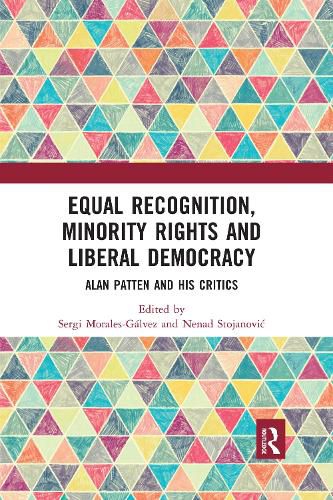Readings Newsletter
Become a Readings Member to make your shopping experience even easier.
Sign in or sign up for free!
You’re not far away from qualifying for FREE standard shipping within Australia
You’ve qualified for FREE standard shipping within Australia
The cart is loading…






Multiculturalism is not a la mode nowadays. It is attacked by both right-wing populists and mainstream politicians and leaders of liberal democracies. Indeed, conflicts surrounding cultural diversity and recognition are among the most salient issues in contemporary societies. Should liberal democracies recognise specific cultural rights of minorities? If so, should they grant rights only to indigenous national minorities or also to immigrants? Is such a recognition compatible with the basic liberal principle of state neutrality?
Practical questions of this kind are in quest of sound theoretical foundations. Alan Patten’s approach to multiculturalism, developed in Equal Recognition (2014), is the most recent and prominent example of such an effort. Considered the most important contribution to the philosophy of cultural diversity since Will Kymlicka’s Multicultural Citizenship , Patten’s work elaborates new and original conceptions of culture and liberal neutrality. It reasserts the case in favour of liberal multiculturalism and applies its theoretical framework to concrete contemporary issues, such as language rights, federalism, secession, and immigrant integration.
This collection presents a critical review of Patten’s approach to cultural plurality. The critics question the overall normative strategy of Equal Recognition, its account of neutrality, especially with regards to language rights, its assumptions about democracy and, finally, its relevance to public policy debates. It will be of interest to political scientists, philosophers, and legal theorists, and will inspire students and politicians alike.
This book was originally published as a special issue of the Critical Review of International Social and Political Philosophy.
$9.00 standard shipping within Australia
FREE standard shipping within Australia for orders over $100.00
Express & International shipping calculated at checkout
Stock availability can be subject to change without notice. We recommend calling the shop or contacting our online team to check availability of low stock items. Please see our Shopping Online page for more details.
Multiculturalism is not a la mode nowadays. It is attacked by both right-wing populists and mainstream politicians and leaders of liberal democracies. Indeed, conflicts surrounding cultural diversity and recognition are among the most salient issues in contemporary societies. Should liberal democracies recognise specific cultural rights of minorities? If so, should they grant rights only to indigenous national minorities or also to immigrants? Is such a recognition compatible with the basic liberal principle of state neutrality?
Practical questions of this kind are in quest of sound theoretical foundations. Alan Patten’s approach to multiculturalism, developed in Equal Recognition (2014), is the most recent and prominent example of such an effort. Considered the most important contribution to the philosophy of cultural diversity since Will Kymlicka’s Multicultural Citizenship , Patten’s work elaborates new and original conceptions of culture and liberal neutrality. It reasserts the case in favour of liberal multiculturalism and applies its theoretical framework to concrete contemporary issues, such as language rights, federalism, secession, and immigrant integration.
This collection presents a critical review of Patten’s approach to cultural plurality. The critics question the overall normative strategy of Equal Recognition, its account of neutrality, especially with regards to language rights, its assumptions about democracy and, finally, its relevance to public policy debates. It will be of interest to political scientists, philosophers, and legal theorists, and will inspire students and politicians alike.
This book was originally published as a special issue of the Critical Review of International Social and Political Philosophy.